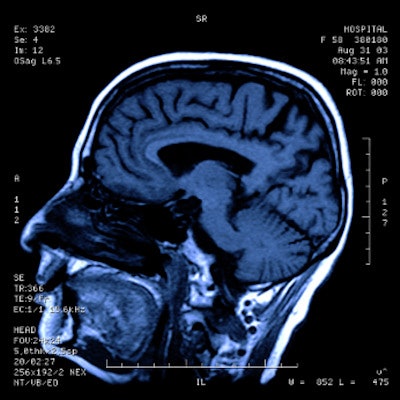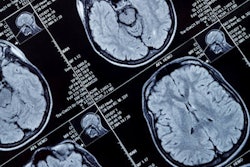
A California-based startup called BrainKey is offering MRI exams straight to consumers with the pitch that they can explore 3D models of their own brains. BrainKey's backers believe that the service will help consumers assess their brain health and could prompt early care for future ailments.
The company sees its consumer-focused service as a way to get brain health data to referring physicians and radiologists who can then present it to patients in a more convenient and comprehensible way, cofounder and CEO Owen Phillips, PhD, told AuntMinnie.com.
"People want to see their imaging results, but imaging data often doesn't get to them in a way that's understandable," he said. "They see the DICOM image and it doesn't mean anything. We want to make brain imaging information accessible for patients and easy for physicians to present."
Your brain on MRI
Phillips and BrainKey cofounder and Chief Technology Officer (CTO) Ben Kotopka, PhD, met at Stanford University and developed the idea for the company there. BrainKey launched in 2018; in 2019, the startup was invited to participate in Silicon Valley's Y Combinator program, from which it secured some seed funding. Its advisory board is made up of researchers from the University of Toulouse in France, the University College London in the U.K., the University of Tübingen in Germany, and Stanford.
"Ben and I met in a class at Stanford, and we both had a keen interest in deep learning," Phillips said. "We formed a group together for a class project and then just kept going."
The idea behind BrainKey is to offer consumers a snapshot of their brain health, identifying any early, asymptomatic problems -- such as aneurysms, lesions, or tumors -- and, going forward, being able to track and treat those problems. The $390 service includes a 15-minute MRI scan at one of the company's partner MRI centers, all of which are in California (one in Mountain View, CA, and seven in Southern California); radiologists from BrainKey's partner Focus Medical Imaging in San Gabriel, CA, read the studies and send their reports to the particular imaging center.
In addition to the actual exam and the baseline review that presents the MRI brain mapping data -- processed by an AI algorithm Phillips and Kotopka developed -- the service also includes a subscription to a personalized dashboard through which clients can explore a 3D model of their brains. The dashboard features a map that identifies the different parts of the brain and data on brain volume (the company's website features three brain scan demos that show what the dashboard looks like). Clients can also upload any previous brain MRI exams to the dashboard.
If a client's scan shows potential brain health problems, BrainKey helps the person connect with appropriate physicians.
"Although we're not offering diagnoses, the radiologist report will note concerns and make suggestions about what the client can do to address them," Phillips said. "We have connections with neurosurgery at the University of California, Los Angeles and can put people in contact with physicians there -- or the client can take the report to their primary care provider."
Patient-friendly imaging
To date, BrainKey has mainly been offering its services to patients from its partner MRI centers, according to Phillips; it has just begun to market the offering to private individuals. In fact, it sees its main client demographic as patients in healthcare networks and their providers, and as such seeks to partner with more of these organizations -- which it expects will offer radiologists more interpretation opportunities, Phillips said.
"The fact is, imaging volume is going up, not down, and patients want to get their results quickly and in an understandable way," he said. "We'd like our software to be used by MR imaging centers and neurology clinics, so that instead of receiving a CD, patients can access their brain MRI results in a cloud-based format."



















